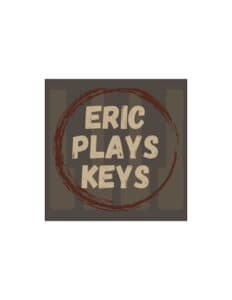
Learning music theory can seem like a daunting task, and many new students will wonder how long it will take them before they feel comfortable with the material. Although there is variability between individuals, this article will outline some timelines that you can expect to progress, and provide some additional information to help speed things up!
Learning music theory will likely take four or more years to reach an advanced level of understanding. Importantly, this is an estimate and the timeline will vary between individuals. In addition, some individuals can continue learning advanced music theory topics for a lifetime.
For an in-depth dive into the process and timeline of advancing your studies, as well as strategies to progress quickly, keep reading!
Rough Timeline and Milestones for Learning Music Theory
At the beginner level, you can expect to learn the basics of music theory, such as scales, chords, and basic harmony. You may also learn about music notation and basic ear training techniques. With regular practice and study, it is possible to reach an intermediate level of understanding within 1-2 years. This stage can be difficult for some students because it is hard to see why this knowledge is helpful. However, a baseline understanding is required to obtain more advanced concepts that more directly apply to playing and writing music. For example, using chord harmony to write a simple song is not possible without knowing the structure and function of basic chords.
At the intermediate level, you can expect to build upon the foundations learned at the beginner level and delve deeper into more complex music theory concepts. This may include learning about more advanced chords, harmony, and ear training techniques, as well as beginning to analyze and interpret music in more detail. It may take 2-4 years of consistent study and practice to reach an advanced level of understanding. At this stage, music theory knowledge can be very useful for most musicians and allow for writing music, improvising solos, and understanding songs. Many musicians remain here, and this is adequate for their skillset.
At the advanced level, you can expect to have a thorough understanding of music theory and be able to apply it in a variety of contexts. This may include analyzing and interpreting complex musical works, using advanced composition techniques, and continuing to improve your ear training skills. It may take 4+ years of dedicated study and practice to reach this level of proficiency in music theory. These skills are especially useful for classical musicians and teachers.
It’s important to note that these timelines are rough estimates and will vary based on individual factors such as previous music education and experience, learning style and pace, and the quality of resources and guidance. Some people may be able to learn music theory more quickly, while others may take longer. The important thing is to set achievable goals and consistently work towards improving your understanding and skills.
Factors That Affect the Learning Process
If you have already received some music education or have experience playing an instrument, you may have a head start in learning music theory. You may already have a basic understanding of concepts such as scales, chords, and notation, which can make it easier to learn more advanced music theory concepts. This practical knowledge will be very helpful. I recommend starting to learn how to play before starting your music theory studies. If you have little or no music education or experience, you may need to spend more time learning the basics before moving on to more advanced topics.
The more time you are able to dedicate to studying and practicing music theory, the faster you will be able to learn and improve. It is important to find a balance between study and practice, as both are important for developing your skills. Practicing your instrument and/or practicing your composition skills is very important because music theory is only a supplement to these hard skills. It is important to contextualize your music theory concepts with hands-on experience to ensure you understand the concept deeply enough to apply it in new ways.
Everyone has a unique learning style and pace. Some people may be more visual learners and benefit from using resources such as textbooks with diagrams and charts, while others may be more auditory learners and benefit from listening to explanations and examples. It is important to find resources and approaches that work best for your learning style and pace. I enjoy learning most things by ear, and especially enjoy learning about melody and harmony by listening and copying music I hear on Youtube, Spotify, etc. However, I would not be able to understand many of the things I hear if I hadn’t begun my studies with music theory textbooks and teachers when I was a kid.
The quality of the resources and guidance you use can have a big impact on your learning experience. It is important to choose resources that are well-written, easy to understand, and appropriate for your level of understanding. Similarly, it can be helpful to have the guidance of a knowledgeable and experienced teacher or mentor who can provide personalized feedback and support.
Tips For Learning Music Theory Quickly
Get professional guidance: One of the most effective ways to learn music theory is through a formal education program or private lessons with a qualified teacher. A good teacher can provide personalized feedback and support, answer questions, and help you overcome any challenges you may encounter along the way. Look for a teacher or course that is well-respected and has a good reputation, and be sure to communicate your goals and needs clearly. This is an essential strategy for classical musicians because many of the advanced topics in classical music are best taught by qualified professionals. For musicians in less formal genres of music, this may be less helpful.
Spend time studying: As with any skill, practice is essential for learning and improving in music theory. Set aside dedicated time each week to study and practice, and try to make it a consistent part of your routine. Regular practice can help you retain what you have learned and build upon it over time. Even if you can’t schedule recurring time slots for study, make sure you study at least a few times a week. Any less than this and it’s hard to build up enough momentum to feel like you’re making any progress.
Mix it up: There are many resources available for learning music theory, including textbooks, online lessons and courses, software programs, and more. Using a variety of resources can help you get a well-rounded understanding of the subject and can help keep things interesting. Experiment with different resources and see what works best for you. This is the strategy I’ve used for my entire life – I’ve learned from teachers, copying musicians in Youtube Videos, online courses, books, friends – you name it. This will provide varying viewpoints and flexibility in your thinking.
Work with musicians in your community: Getting feedback and guidance from experienced musicians can be a valuable way to learn and improve in music theory. This can include getting feedback on your compositions or performance, asking for help with specific concepts or questions, or simply seeking guidance from someone who has more experience. Having a mentor or someone to turn to for advice and support can be a valuable asset in your music theory learning journey. In addition, seeing other musicians utilize their music theory knowledge effectively will help provide motivation.
Strategies for Learning Music Theory
One approach to learning music theory is through formal education, such as a college degree program or private lessons. This can be a good option if you want a structured and comprehensive approach to learning the subject, and if you have the time and resources to invest in a more formal program. Formal education programs often include a mix of lectures, assignments, and practical exercises, and may also include opportunities for performance and analysis.
Another approach to learning music theory is through self-study, using resources such as textbooks, online lessons, and software programs. This can be a good option if you are self-motivated and prefer to learn at your own pace, or if you have a busy schedule and are unable to commit to a formal education program. Self-study requires discipline and motivation, but can be a flexible and affordable way to learn music theory.
Finally, some people may find that a combination of formal education and self-study works best for them. This can involve taking a music theory course or lesson series as part of a larger education program, or working with a private teacher while also using self-study resources to supplement your learning. This approach can provide the structure and guidance of formal education while also allowing you to customize your learning experience and work at your own pace.
